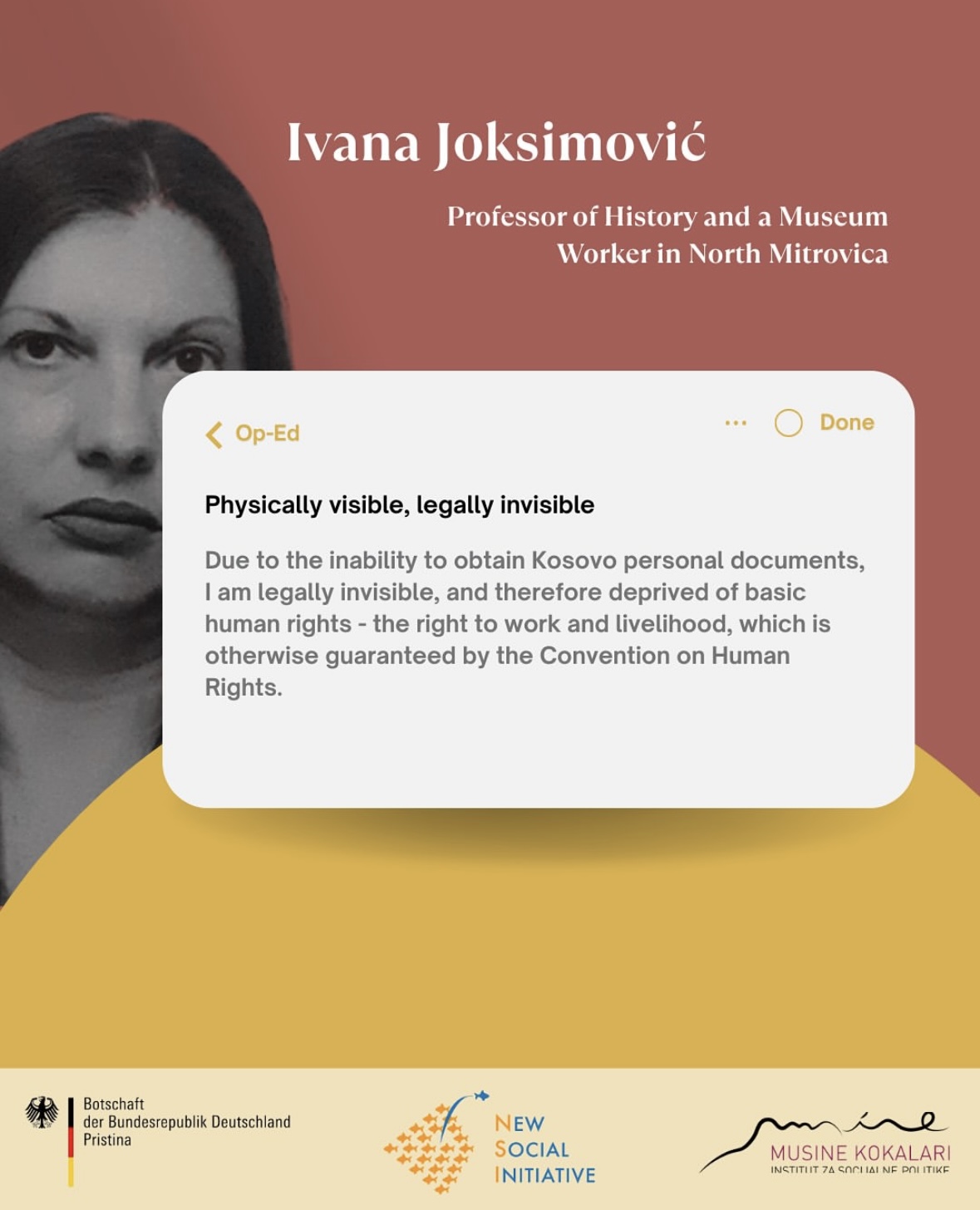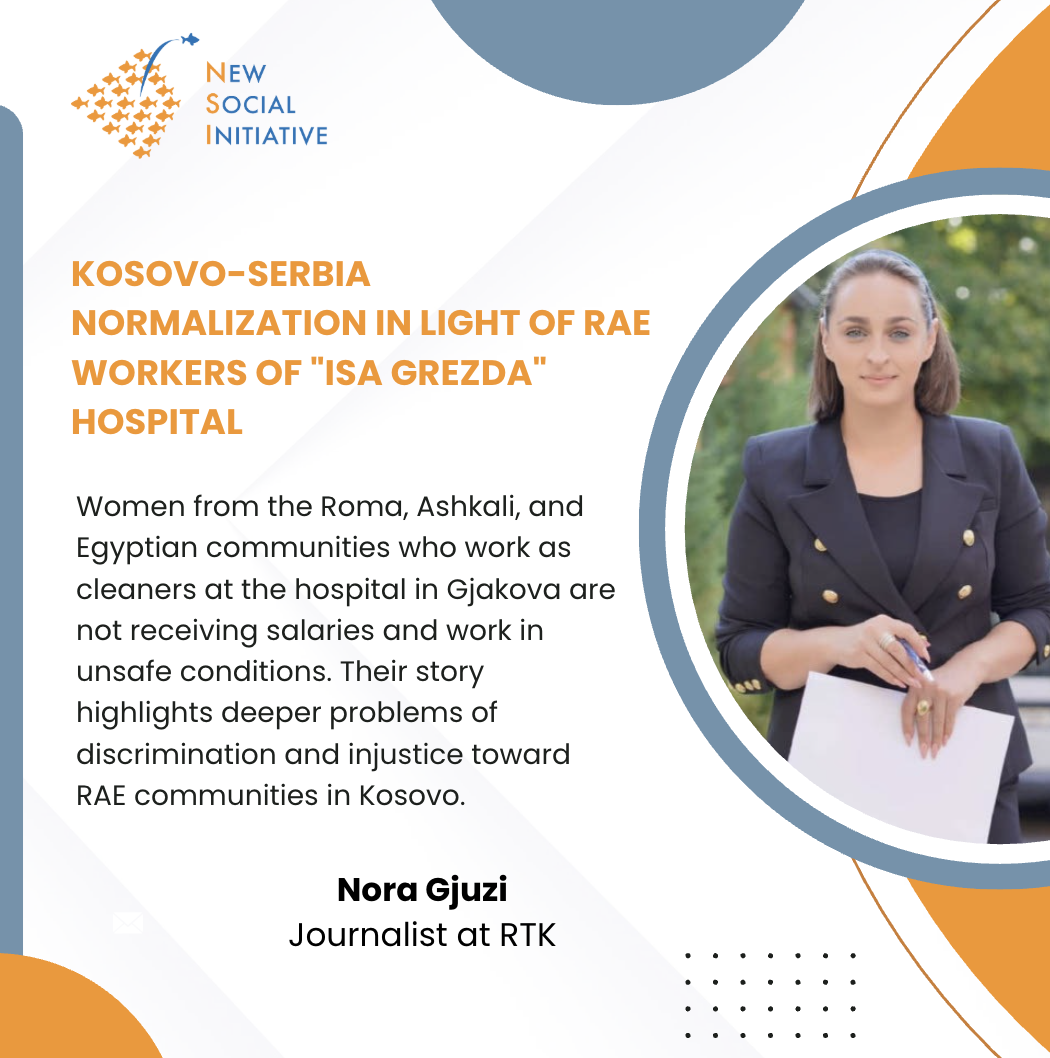Kosovo-Serbia normalization as a development opportunity for both non-Serbs and non-Albanians
“Selamir, you’re not like the others, you’re like us.” This is a phrase I’ve heard many times in elementary and high school. As if I was told that I was not like other members of my Ashkali community, that I was “better”.
I won’t deny that it made me proud and relieved. That I thought I was different. That I had gone beyond the boundaries of my community and had a special status. What a joy! I was accepted by others who saw me as “one of their own.”
But now that I think about it, I feel ashamed. I understand that this kind of segregation was not an honor, but a purely racist affirmation.
This experience was a bitter awakening. I realized that what seemed to me to be appreciation was actually a form of internalized discrimination. I had accepted without realizing the narrative that my community was “inferior” and that my success was measured by the distance I created from it.
This led me to distance myself and try to match the expectations of “superiors” by inadvertently rejecting part of my identity. This inherent discrimination was not harmless. It affected my decisions, the way I see myself and my ambitions.
Ashkalis go through a similar experience in Serb-majority areas as well. Among other “superiors.”
Living as an “inferior” between two antagonistic “superiorities” in search of normalization of their relations. This is almost the everyday reality of Ashkalis. Or at least, my own.
But as much as I tried to eradicate my feature in the eyes of the “superiors”, it was there. I felt it. Especially when it comes to the public, the society, the state. For integration, representation, inclusion in the community. Where I didn’t feel “better” than other members of my community. Where I was Selamir, the Ashkali.
That stigmatization and prejudice as subjective too leads to (self)exclusion, I experienced in high school. When I dreamed of enrolling in the military academy. It was a call that I felt deeply. A desire for discipline and to serve the country. But every time I thought about it, I was scared. Not because of physical or mental challenges. But due to the prejudice of prejudice. That I would be seen as an Ashkali. I was terrified by the idea of prejudice. That one day, sooner or later, I would face the way I was seen.
I didn’t have the courage to apply. I told myself that maybe it wasn’t the right way, that maybe I didn’t love this call so much. Escape from fear.
The deep internalization of prejudice has made me a greater obstacle to myself. When I realized it was impossible to continue. I had to find a way to break this chain and regain what I had been denied – not by others, but by myself.
I started working on regaining my self-confidence. It was only later that I realized that success is measured not by departing from my culture, but how much I can use what it offers me to increase my potential.
That was the moment when I started looking for opportunities that connected me with my passion, with what belonged to me. As I tried to develop myself and challenge the norms, I learned that the opportunities are endless for those who dare to break down the barriers set by others.
I decided to go for journalism. I knew this was a bold step, but also an opportunity to express myself and challenge the perceptions I had of myself. Journalism offered me the opportunity to change my approach and fight for the rights of those who often do not have the opportunity to speak for themselves.
In my professional journey, I have faced challenging moments, but also moments that helped me to better understand myself as a journalist, but first and foremost as an individual.
One of the experiences I would like to share is a job interview for a media outlet. After a long conversation, the person in charge examined my application and said to me:
“I’m glad you are part of the Ashkali community, and I want to have you on my team.” At first, his words seemed to me like a welcoming door. But the longer I thought about them, the more I felt an invisible weight, a shadow of doubt weighing over them.
It was clear – he didn’t see me for what I had built with dedication, but for what I represented in his eyes. It was not my ability that gave weight to his decision, but my ethnic identity, a label that, instead of affirming me, confined me to a premeditated framework.
At that moment, I felt the urgent need to set a boundary, a line that should not be crossed. Calmly, but also with a determination, I said: “If this offer comes only as a result of my ethnicity, then I cannot accept it. Above all, I want to be appreciated for my professionalism, for my skill and dedication – not for something that has nothing to do with the work I know and want to do. ”
He was silent for a moment. Then, after reflecting, he said, “I see, and you are right.” At that moment I knew – I wasn’t turning down an opportunity but affirming my worth as a professional.
This is my personal experience of the usefulness of normalizing an individual from a community that tends to be stigmatized as a collective. A normalization that creates opportunities for all and should be promoted by all.
The more normalization, both social and neighborly, the more we can have inter-community normalization. More growth and employment. Especially for the Ashkalis. Especially from the normalization of relations between Kosovo and Serbia.
This publication was made possible in the framework of the project “Dialogue, Solution, Future”, with the support of the Ministry of Foreign Affairs of the Federal Republic of Germany, implemented by the New Social Initiative (NSI) and the Institute for Social Policy Musine Kokalari. The content of this article is the exclusive responsibility of the Institute for Social Policy Musine Kokalari and the New Social Initiative. It does not necessarily reflect the views of the Ministry of Foreign Affairs of the Federal Republic of Germany.










